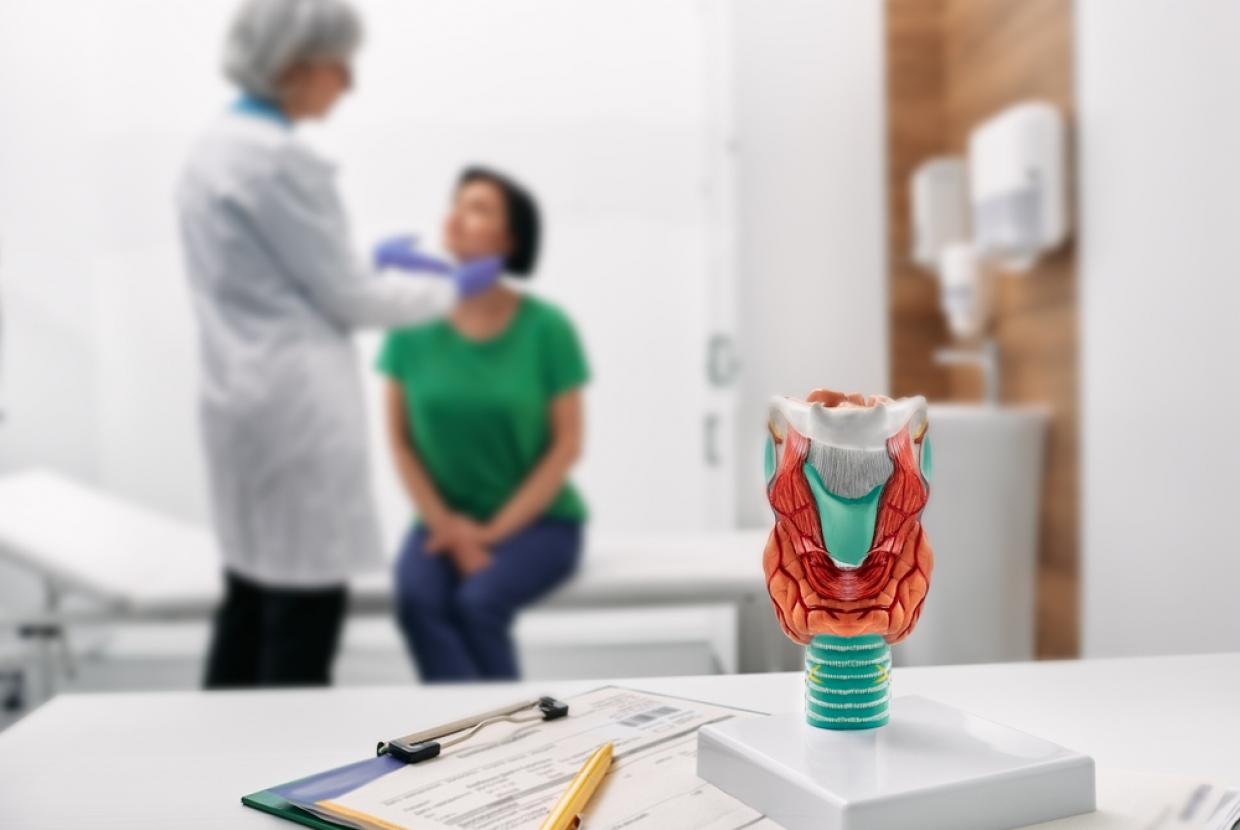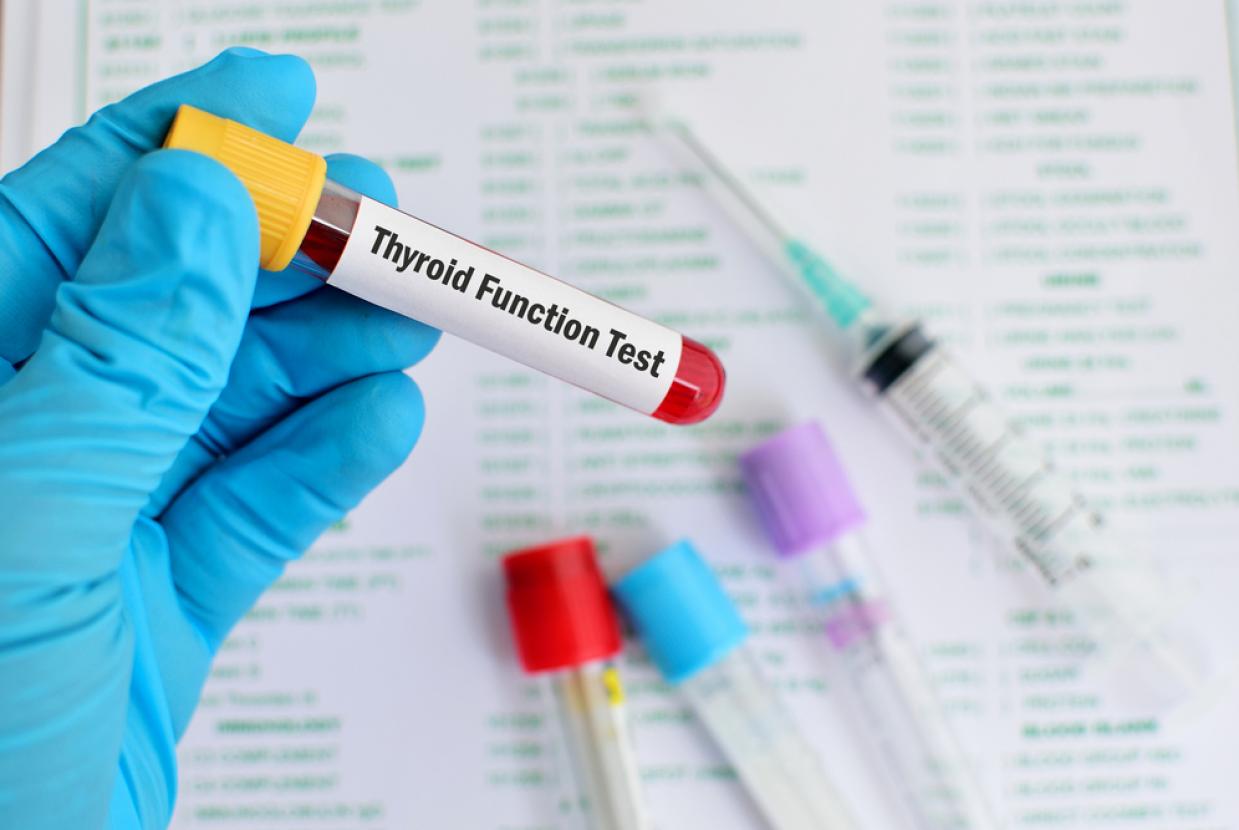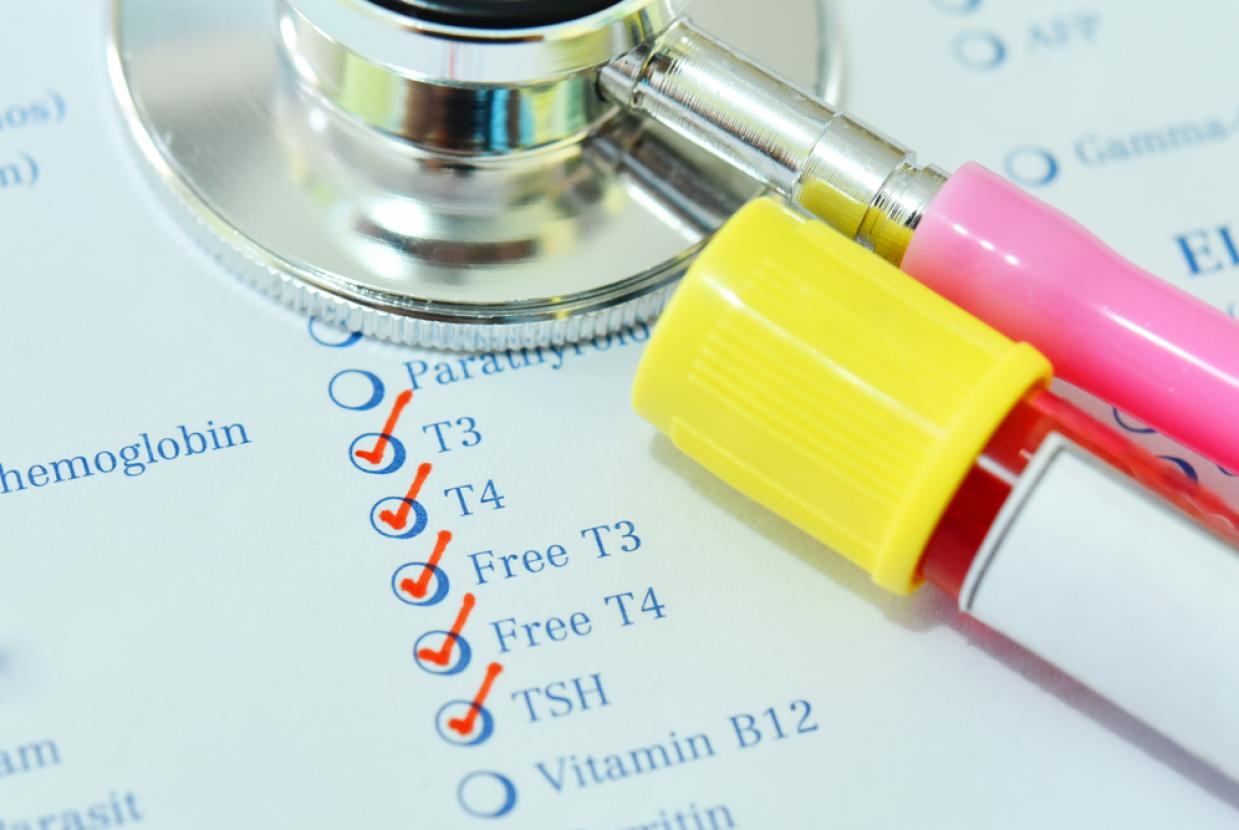Treating An Overactive Thyroid
An overactive thyroid (hyperthyroidism) is usually treatable. You'll usually be referred to a specialist in hormonal conditions (endocrinologist) who will plan your treatment. The main treatments are:
- medicine
- radioactive iodine treatment
- surgery
Medicine
Medicines called thionamides are commonly used to treat an overactive thyroid. They stop your thyroid producing excess hormones. The main types used are carbimazole and propylthiouracil.
You'll usually need to take the medicine for 12 to 18 months, and it may be a few months after you start taking it before you notice any benefit. You may also be given another medicine called a beta blocker to help relieve some of your symptoms in the meantime.
Once your thyroid hormone levels are under control, your dose may be gradually reduced and then stopped. But some people need to continue taking medicine for several years or possibly for life.
Side effects
During the first couple of months, some people experience the following side effects:
- feeling sick
- high temperature
- headaches
- aching joints
- altered taste
- upset stomach
- an itchy rash
These should pass as your body gets used to the medicine. Make sure you use effective contraception while taking carbimazole. Taking carbimazole while pregnant can harm your unborn baby. Tell your doctor immediately if you’re taking carbimazole and you become pregnant.
A less common but more serious side effect is a sudden drop in your white blood cell count (agranulocytosis), which can make you very vulnerable to infections.
Contact your doctor immediately if you get symptoms of agranulocytosis, such as a high temperature, sore throat, or a persistent cough. They may arrange for a blood test to check your white blood cell count.
Radioactive iodine treatment
Radioactive iodine treatment is a type of radiotherapy used to destroy the cells in the thyroid gland, reducing the amount of hormones it can produce. It's a highly effective treatment that can cure an overactive thyroid.
You're given a drink or capsule that contains iodine and a low dose of radiation, which is absorbed by your thyroid. Most people only need a single treatment.
It can take a few weeks or months for the full benefits to be felt, so you may need to take medicine, such as carbimazole or propylthiouracil, for a short time. The dose of radiation used during radioactive iodine treatment is very low, but there are some precautions you'll need to take after treatment:
- avoid prolonged close contact with children and pregnant women for about 3 weeks
- women should avoid getting pregnant for at least 6 months
- men should not father a child for at least 4 months
Radioactive iodine treatment is not suitable for women who are pregnant or breastfeeding. It's also not suitable if your overactive thyroid is causing severe eye problems.
Surgery
Occasionally, surgery to remove all or part of your thyroid may be recommended. This may be the best option if:
- your thyroid gland is severely swollen because of a large goitre
- you have severe eye problems caused by an overactive thyroid
- you cannot have other, less invasive treatments
- your symptoms return after trying other treatments
Removing all of the thyroid gland is usually recommended because it stops the symptoms of hyperthyroidism coming back. But you'll need to take medicine for the rest of your life to make up for not having a thyroid gland. These are the same medicines that are used to treat an underactive thyroid.







































